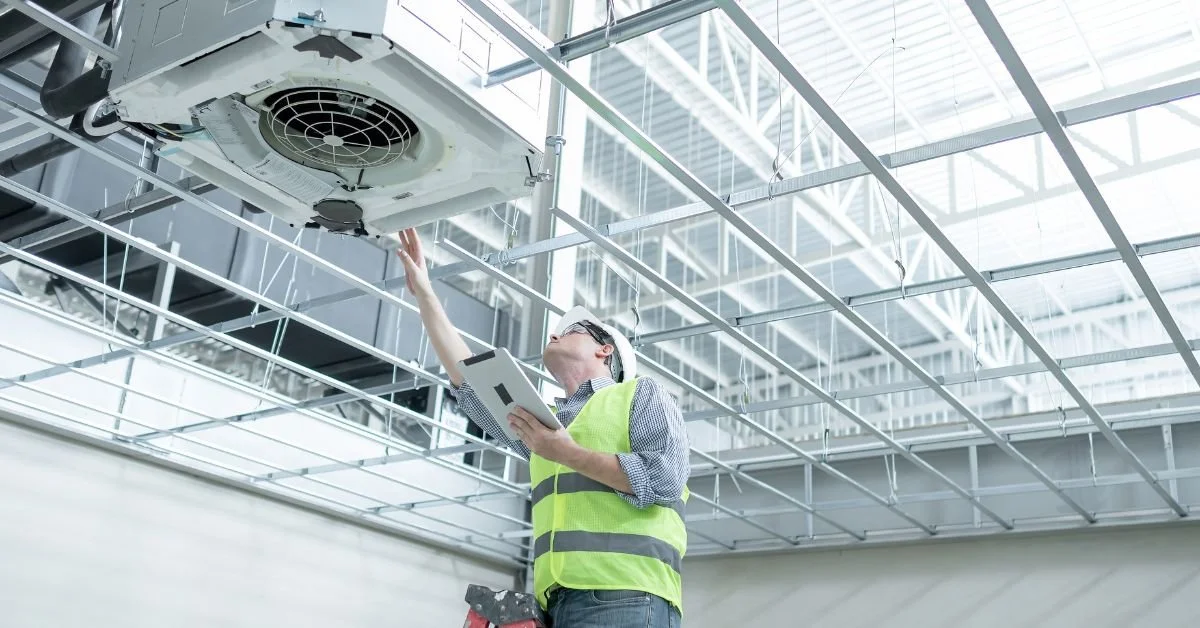Achieving Clean and Healthy Well Water Showers
Many households rely on private well systems that source cleaner groundwater reserves on their properties for daily usage. Though sometimes higher quality than municipal supplies, challenges still exist around managing taste, odor, and staining issues for uses like showering, where water directly contacts skin, hair, and surfaces. That's where whole-house or showerhead-specific filtration comes in, removing well-water impurities efficiently while retaining benefits.
This article will explore typical problems faced regarding well-water showers, the importance of testing water chemistry, the fundamentals of tailored filtration solutions, and what to evaluate when picking the best filtration for well water for one's particular healthy system context. Equipped with critical learnings here, readers can enjoy residue-free hair, vibrant skin, and immaculate bathroom shine using thoughtfully designed treatment hardware like those discussed.
Typical Well Water Shower Problems
While superior to chlorinated and contaminated public water sources, untreated healthy water for showers still poses specific, manageable issues:
Bothersome Smells and Residue
Hydrogen sulfide gas causes rotten egg odors, and sulfate bacteria produce slippery black slime on surfaces. Shower enjoyment increases by eliminating such annoyances cleanly despite the water purity merits otherwise.
Hair and Skin Damage
Heavy metals like lead and mercury damage follicles, triggering hair loss. Hard water mineral buildup on the skin causes irritation and clogged pores long term. Many private wells contain such profiles without diligent filtration.
Visual Cloudiness and Spotting
High iron or manganese concentrations make water appear an unappealing orange, black, or brown upon exposure to air. As this gets atomized by showerheads, surfaces stain persistently, impacting bathroom aesthetics without preventative water treatment upstream.
Pipeline Corrosion Risks
Untreated water corrosion causes piping and plumbing failures over time, requiring expensive repairs. Filtration early on protects such infrastructure investments proactively.
Spread of Existing Mold Issues
Since well water high in organics feeds mold growth in bathrooms unless tackled at the root cause, skin/lung irritation persists as infestations worsen, impacting household health via air quality.
Scalp Irritations and Folliculitis
Bacterial contaminations directly trigger scalp issues, subverting hygiene. Eliminating such microbes from the water can often treat redness, tenderness, and pustule outbreaks, improving dermatological outcomes.
Water Testing Recommendations
With comprehensively analyzing well water chemistry, exact filter customization proves easier. Testing is vital for tailored solutions. Here are the aspects to cover:
Microbiological Analysis
Checking bacterial coliform, E. coli, and total dissolved solids levels ensures no infectious organisms exist while indicating corrosion risks should values be unusually high. Also, probe sulfate presence.
Metals Screening
Atomic absorption spectroscopy accurately measures troublesome metals like arsenic, lead, copper, cadmium, and zinc, informing appropriate filtration approaches for user safety and infrastructure longevity.
Physical Parameters
pH, turbidity, hardness, and iron concentrations dictate scale risks affecting plumbing, staining, and soap and shampoo effectiveness, guiding compatible purification hardware selection for optimal shower user comfort.
Professional lab testing offers the highest accuracy for such parameters. But affordable DIY kits also work for general guidance.
Analyzing Radionuclides
Though rarer, gross alpha radiation screening ensures no Uranium, Radium, or Radon is present internally, causing hazardous exposures during bathing and injection for vulnerable household members. It is worth probing as a risk factor.
Seasonal Variance Checks
Periodic testing across monsoons, summers, and winters reveals significant changes in water characteristics annually. What was held previously may diverge if underground aquifer or soil behaviors transform over months, benefiting from comparative scrutiny.
Testing After Infrastructure Changes
Well, repairs, nearby construction projects, or drilling additional site groundwater points for sharing impact interconnected geology noticeably. Hence, after such site modifications, revalidation protects against assumptions of past purity holding valid conclusively when situations evolved in fact.
Tailored Filtration System Fundamentals
Once water chemistry profiling helps pinpoint target contaminants, purposefully designed filtration tackles such issues efficiently while retaining useful minerals balanced for health, unlike completely sterile water.
Multi-Stage Systems
Multiple filter mediums integrated in sequence often perform better than just one remedial approach. For example, pre-filter sediment capture protects a main KDF and carbon block cartridge, consolidating physical and chemical purification.
Matching Target Contaminants
Activated carbon in shower filters works well, absorbing chlorine and many chemicals. However, excess sulfur requires dedicated media like copper-zinc oxidation media. Manganese oxidation requires MnOx instead, while acidic water may need calcite or corrosion inhibitor-infused components.
Managing Flow Rates
Highly powerful multi-nozzle showerheads need appropriately rated filters to keep pace, consistently supplying purified water and avoiding flow throttling or output temperature drops. The over 2 gallons per minute rating is ideal for uninterrupted high-pressure output meeting household demand, ensuring a satisfying user experience.
Maintenance Planning
Proactively defining shower filter unit replacement schedules for filter media ensures the persistence of purification efficacy, avoiding issues resurfacing over long-term usage beyond installation alone. Periodic upkeep is essential.
Installation Considerations
Besides technical filtration competency for the nuanced impurity profile, adequately skilled installation, avoiding leaks, etc., and using compatible parts for existing plumbing remain vital for hobbyists rather than just product aspects alone, avoiding suboptimal deployments.
Budgeting
Filtration is essential for well water purity in the long term, so filter unit changes must be adequately factored into homeowners' repair and maintenance budgets. However, tackling deterioration risks early protects far costlier plumbing repairs. Invest now, relax later!
Pre-Filter Considerations
Sediment pre-filters gather large grit to avoid fouling primary filter media prematurely. Though mandatory addons for longevity, requiring frequent replacements do carry recurring consumables costs if inlet feed water lacks adequate coarse filtration naturally via sandbeds.
Lean on Technical Standards
National Sanitation Foundation and Water Quality Association standards testing against verified contaminant reduction efficacy provide credibility to marketing terminology. Certified proof as per such gold standards reassures hardware claims credibly.
Food-Grade Plastics Only
Toxic leaching worries negate purity gains for water contacting the skin if filters employ cheaper plastics internally. Rigorously verified food-safe components avoid inadvertent chemical exposures while showering after technical purification.
Picking the Best Shower Filters for Well Water Contexts
With purification fundamentals understood based on tested unique water composition, the focus narrows to identifying optimal brands and models that suit individual home needs using that intel smartly.
Seek Specialized Well Water Credentialing
General filtration improves essential aspects like chlorine absorption and sediment reduction. However, explicitly certified well-water-compatible variants better handle contaminants like hydrogen sulfide using tailored media preferences such as niche-proven offerings.
Match Technical Specs to Tested Profile
Instead of marketing claims, they independently verified technical documentation listing which chemicals and metals are successfully filterable to what target levels or removal capacity matter more. Ensure such device efficacy proofs align with water report red flags.
Consider Carefully Brand Reputation and Reviews
While specifications signal intent, actual user reviews validating such filtration claims help choose products that deliver satisfactorily in real home deployments and match one's context with brands with reputed specialized R&D around well water needs.
With information parity around personal water quality data and shower filter capabilities substantiated by other households with similar ecological profiles, individuals can enjoy residue, stain, and odor-free water with peace of mind around health plus scalp and skin protection!
Source Responsibly
Ethically produced shower filters avoid exploitation, ensuring fair working conditions and wages for those manufacturing such safety products. Seek B-Corp and Fair Labor certifications, as socially conscious procurement matters.
Analyze Serviceability
Replacement cartridge Single-use models increase waste impacts in the long term. On the other hand, easily serviceable modular filters with user-swappable media lessen environmental footprints sustainably and maximize household costs through continued reuse.
Scalability Options
Whole-house systems amplify benefits for the entire property of a central unit. Otherwise, group showerhead placements fulfill households' high demand. Do size units suitably factor in usage patterns, occupancy, and peak loading?
Conclusion
In summary, households relying on healthy water recognize the higher baseline quality carrying benefits like mineralization, which are absent from public supplies, making it a natural everyday drinking and cooking choice. However, showering uses involving direct skin contact make adequate filtration for specific chemical or bacterial contaminants necessary for protection and visual appeal. With care taken to assessing unique water impurity profiles through comprehensive testing, purpose-designed solutions readily address such nuisance issues using proven multi-stage filtration methods prioritizing family health/comfort.






